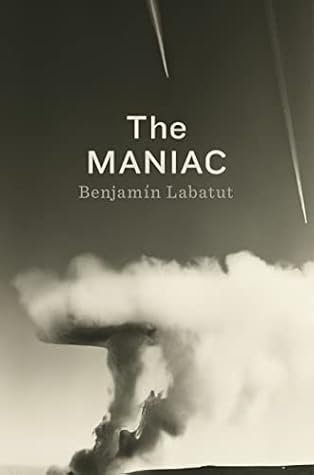More on this book
Community
Kindle Notes & Highlights
in 1932, at the end of a meeting of three dozen of Europe’s best physicists at the Niels Bohr Institute in Copenhagen, a parody of Faust was staged to celebrate the centennial of Goethe, and Paul was cast as the great scholar Heinrich Faust himself, unwilling to be convinced by the demon Mephistopheles, portrayed by Wolfgang Pauli, of the existence of the neutrino, a newly postulated fundamental particle.
Ernst Mach, a staunch positivist who contended that physicists should not speak of atoms as anything but theoretical constructs—since, at the time, there was no direct evidence for their existence—hounded and mocked Boltzmann without end, interrupting one of his lectures on atoms with the mean-spirited question: “Have you ever seen one?”
“infinite Heisenberg-Born-Dirac-Schrödinger sausage-machine factory”
If you discovered something disharmonious in nature, Nelly explained, something that negates the natural order entirely, you should never speak of it, not even to yourself, but instead do everything within your means to remove it from your thoughts, purge your memory, watch your speech, and even stand guard against your own dreams, lest the wrath of the gods fall upon you.
in the beginning of September he visited Niels Bohr in Copenhagen, where he mediated a conference, at the end of which he opened up about his depression and suicidal thoughts to the least likely person imaginable, the English physicist Paul Dirac, a wild, unworldly genius who was portrayed by one of his colleagues as “the strangest man alive,” utterly unequipped to understand the intricacies and contradictions of Ehrenfest’s character. Paul opened up to him nonetheless, and spoke about his fears for the future of his family, and especially of young Wassik, for surely the influence of Nazism,
...more
One afternoon in the 1840s, as George Boole walked across a field near Doncaster, a thought flashed into his head that he believed was a religious vision. Boole suddenly saw how you could use mathematics to unlock the mysterious processes of human thought. The same symbols that were used in algebra could be used to describe what went on inside people’s heads as they followed a train of thought, expressing all the twists and turns in simple binary form. If this, then that. If that, then not this. And in 1854, Boole wrote a book that caused a sensation. It was called An Investigation of the Laws
...more
There are two kinds of people in this world: Jancsi von Neumann and the rest of us.
This nagging suspicion—that their entire kingdom rested on nothing—came to be known as the “crisis of the foundations of mathematics,” and it was the most profound questioning of the discipline since the time of the Greeks. The crisis was a strange affair that involved some of the most original thinkers and brightest minds on this planet, but when I look back on it, it seems no more than an Arthurian quest, one where reason strayed past its limits only to find itself holding an empty chalice.
had delivered the day before, to little effect. Because of that, no one really paid any attention when he began to speak with a stutter, so low and so awkwardly that the conference notetaker failed to record his words, which should rightly be famous, but are lost to history, since they were not included in the meeting’s final report. As such, his monumental discovery could have gone completely unnoticed at the time were it not for Jancsi, who was the only person there who realized what had just happened. “I b-believe that we can p-p-postulate, within any consistent f-formal system, a statement
...more
We were all little children with respect to the situation which had developed, namely, that we suddenly were dealing with something with which one could blow up the world.
Is there really a rational course of action in every situation? Johnny proved it mathematically beyond a doubt, but only for two players with diametrically opposing goals. So there may be a vital flaw in our reasoning that any keen observer will immediately become aware of; namely, that the minimax theorem that underlies our entire framework presupposes perfectly rational and logical agents, agents who are interested only in winning, agents who pose a perfect understanding of the rules and a total recall of all their past moves, agents who also have a flawless awareness of the possible
...more


